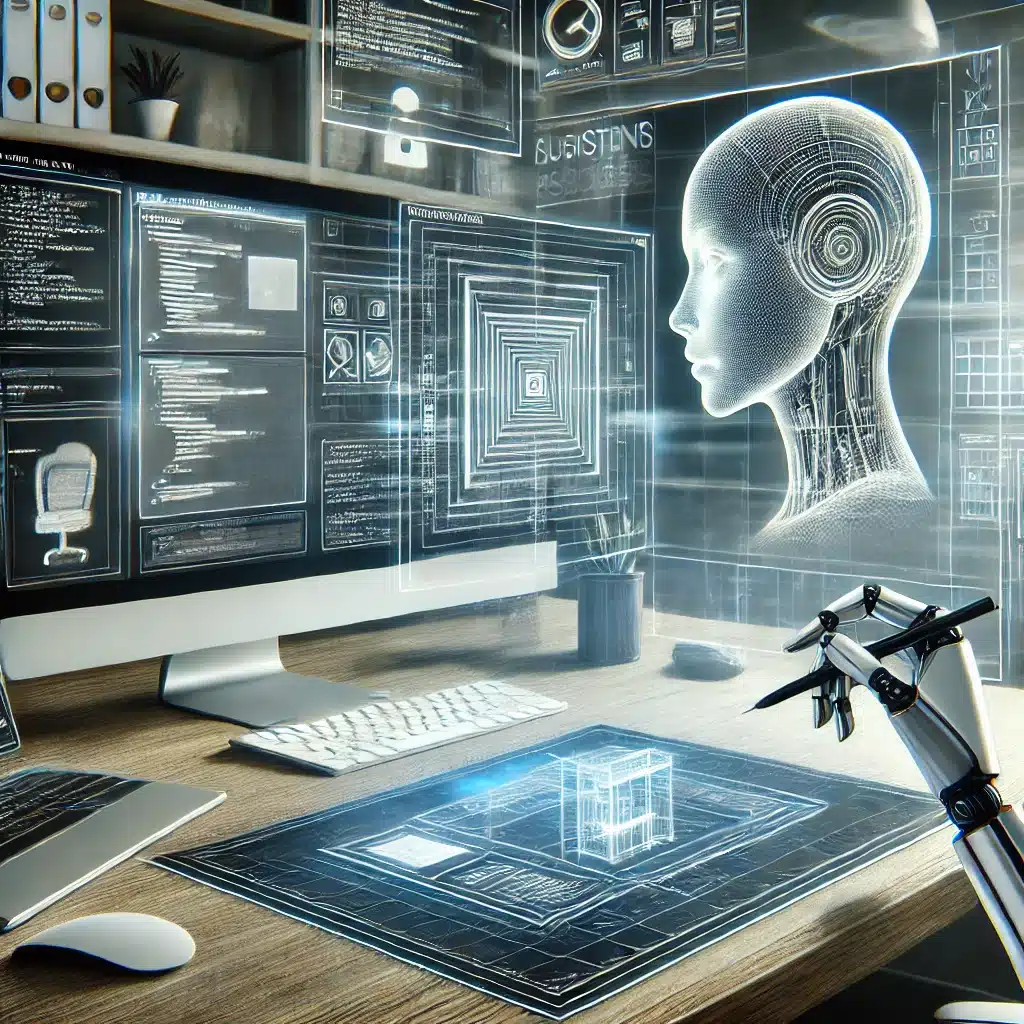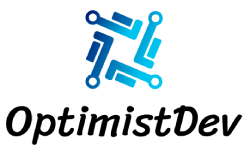AI as a Tool, Not a Replacement: The Web Developer’s Perspective
Introduction
The introduction of AI in web development has become a prominent discussion point in recent years, sparking excitement and, for some, concern. As AI technologies evolve, there is a growing debate about whether artificial intelligence could one day replace human web developers. The answer, however, is nuanced. AI has undoubtedly revolutionized many aspects of web development, from automating code generation to optimizing design processes. But does this mean that the human role in web development is becoming obsolete?
Seeking a Website Developer for your business. We’re here to seamlessly transition your business into the digital world with tailored expertise. Elevate your online presence with us
The consensus among many professionals is that AI is more of an enhancement tool rather than a replacement for human creativity, problem-solving, and innovation. Web developers must adapt to new technologies, and AI is no different. Instead of being seen as a threat, it should be viewed as an ally—one that can enhance productivity, streamline repetitive tasks, and open new doors for creative solutions. This article will delve into the specifics of how AI assists rather than replaces web developers, the benefits it brings, the potential ethical concerns, and how developers can strategically leverage AI to improve their work.
Explore insightful articles and stay ahead in web development with our LinkedIn newsletter, OptimistDev Herald! Click here
The Role of AI in Web Development: Automation Meets Innovation
AI in web development has introduced an unprecedented level of efficiency. The ability of AI to automate tasks that once required manual intervention has allowed web developers to work smarter and faster. These tasks include everything from error detection in code to automating the deployment of web applications.
AI-powered code editors such as Visual Studio IntelliCode and GitHub Copilot are good examples. These tools help developers by suggesting snippets of code, finding bugs before they become problems, and even recommending the best practices for writing clean, optimized code. While these features significantly reduce the time spent on repetitive tasks, they don’t replace the deep understanding of code that developers possess. Human developers still hold the responsibility of writing the backbone of complex systems, managing workflows, and ensuring the final product is functional, scalable, and secure.

Web development encompasses more than just writing code. It involves planning, architecture, problem-solving, and creativity—all elements where AI still falls short. For example, when building complex web applications, decisions about data structures, API integrations, and system behavior under different conditions require human logic and foresight. AI in web development enhances processes but does not replace the strategic thinking and planning that web developers excel at.
AI-Powered Code Generation: A Helping Hand, Not a Replacement
One of the most widely discussed impacts of AI in web development is the introduction of AI-driven code generation. Tools like GitHub Copilot allow developers to generate code from simple natural language prompts. This can be a powerful time-saver, particularly for more straightforward tasks or sections of code that follow predictable patterns. By automating such tasks, developers can avoid writing boilerplate code and focus their time on more important problems, such as how different components of a web application interact with one another.
However, while AI-generated code might be able to handle routine tasks, it still lacks the sophistication to design complex systems or architectures. The subtle nuances of programming—like balancing performance with scalability, ensuring maintainability, and integrating user feedback—are tasks that AI cannot perform effectively. AI assists in writing the building blocks, but humans must design the blueprint.
Additionally, AI-driven tools are still reliant on large datasets, and these datasets often contain inherent biases. Web developers must ensure that the code generated is appropriate for the specific task at hand and free of potential issues that could compromise functionality or introduce security vulnerabilities. In this way, AI becomes more of a collaborative partner than a standalone solution.
AI in Design: Data-Driven Assistance for Creativity
Design is another area where AI in web development has begun to make a significant impact. Web designers can now use AI-driven tools to assist with various elements of the design process. These tools can predict user preferences, optimize color schemes, suggest layouts, and even simulate user experiences based on behavior analytics. For example, Adobe’s Sensei AI helps designers by recommending design patterns and color schemes that resonate with specific user demographics, improving user experience (UX) while reducing guesswork.
But here, too, the human element is crucial. Design involves more than just functionality; it requires an understanding of aesthetics, culture, user psychology, and how users interact with content. A well-designed website goes beyond the mechanics of AI-driven layouts and must consider emotional engagement, brand identity, and storytelling. While AI can aid in making design decisions that are data-driven and efficient, it cannot replace the creative intuition that designers bring to a project.
AI can support designers by automating repetitive tasks such as resizing images, selecting appropriate fonts, or analyzing user engagement data. But the overarching concept, user journey, and feel of a website are still deeply human tasks. The creativity and vision that go into designing an intuitive, engaging website cannot be captured by algorithms.
Ethical Considerations and the Responsibility of Web Developers
As AI technology continues to evolve, there are important ethical considerations for web developers to keep in mind. AI in web development raises questions around data privacy, algorithmic bias, and the potential for AI tools to be used in harmful ways. AI systems learn from data, and this data may contain biases that reflect societal inequalities. For example, AI-driven algorithms could unintentionally disadvantage certain user groups or propagate stereotypes, impacting user experience negatively.
It is the responsibility of web developers to ensure that the AI tools they use uphold ethical standards and do not compromise user privacy or fairness. This includes regularly auditing AI-generated content, monitoring user data closely, and ensuring that the final product serves all user demographics equitably. Web developers must also be vigilant about the security risks that AI might introduce, especially in an age where data breaches and cyberattacks are becoming more sophisticated. AI can enhance cybersecurity, but it also requires careful oversight to avoid vulnerabilities that could be exploited by malicious actors.
Conclusion: The Future of AI and Web Developers
AI is undoubtedly transforming the web development landscape. However, rather than replacing web developers, it is enhancing their capabilities, allowing them to be more productive, efficient, and innovative. AI tools can take care of the mundane, time-consuming aspects of web development, freeing up developers to focus on what they do best: solving complex problems, designing creative solutions, and ensuring that their work reflects the goals and needs of their clients or users.
AI in web development is a powerful tool, but it still requires human oversight and creativity to guide its implementation. The future of web development is not one where AI replaces developers but one where AI works alongside them, augmenting their abilities and helping them deliver better, more sophisticated solutions.
By embracing AI as a tool, web developers can stay ahead of the curve, leveraging technology to create more user-centered, scalable, and secure web applications. In this way, AI will continue to play a critical role in web development—not as a replacement for human talent, but as an assistant that elevates what human developers can achieve.



